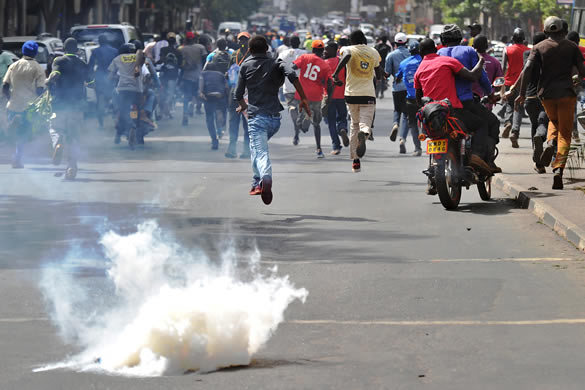Shiite Group And Police Clash Over Abuja Procession.
A confrontation between the Islamic Movement of Nigeria (IMN) and security forces in Abuja has led to conflicting accounts regarding casualties and arrests, following a procession to mark International Quds Day.
The IMN, also known as the Shiite group, has accused security forces of concealing the bodies of its members allegedly killed during the incident on Friday. According to the movement’s Resource Forum leader, Professor Abdullahi Danladi, six members were confirmed dead, while 380 others, including women and children, were arrested and detained at the Special Anti-Robbery Squad (SARS) facility in Guzape, Abuja. Danladi further alleged that security agents were withholding information on the number of casualties, stating that reliable sources had confirmed mass arrests beyond the official figures released by the police.
The Federal Capital Territory (FCT) Police Command, however, denied these claims, insisting that the IMN members were armed and had attacked security operatives during the procession. The police spokesperson, Josephine Adeh, reported that the Shiite group used firearms, cutlasses, catapults, sticks, stones, and petrol bombs against security personnel. She confirmed that two officers sustained severe injuries, while one security operative had died at the National Hospital.
Adeh dismissed the IMN’s allegations, stating that only 19 individuals had been arrested. She argued that the group’s activities remained illegal following its proscription in 2019 and warned that further confrontations with law enforcement would not be tolerated. She also challenged the IMN to provide evidence of the alleged killings.
In response, Danladi refuted the police’s claims, maintaining that the IMN had engaged in peaceful processions for over 40 years without resorting to violence. He insisted that the group had never attacked security operatives and only suffered casualties when confronted by law enforcement. He called for the immediate release of detained members and accountability for those responsible for the deaths.
The latest incident has renewed discussions on the Nigerian government’s handling of religious movements and security operations, with human rights advocates questioning the use of force against the IMN. Despite its proscription, the movement continues to stage processions and protests, arguing that the ban is under legal challenge and does not justify what it describes as extrajudicial killings of its members.



